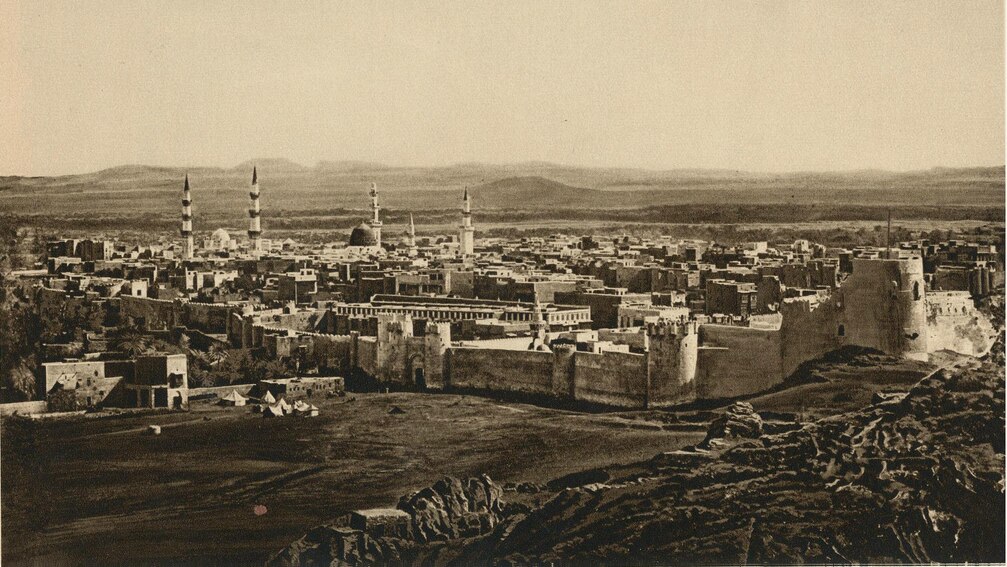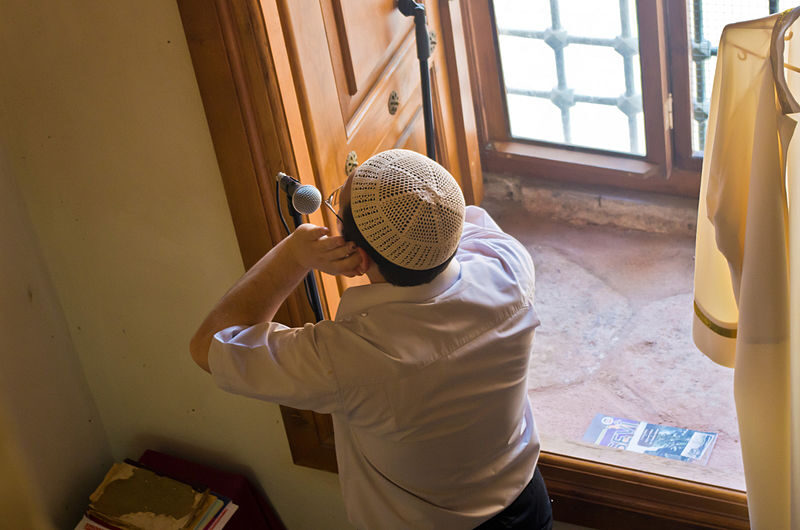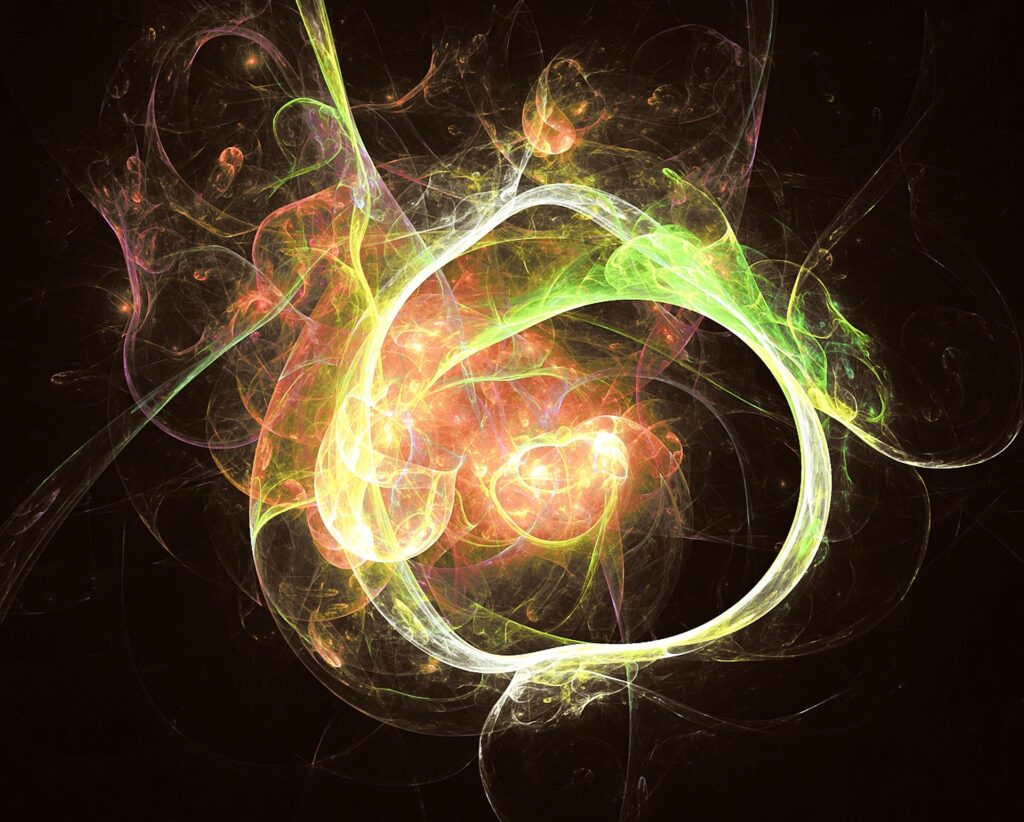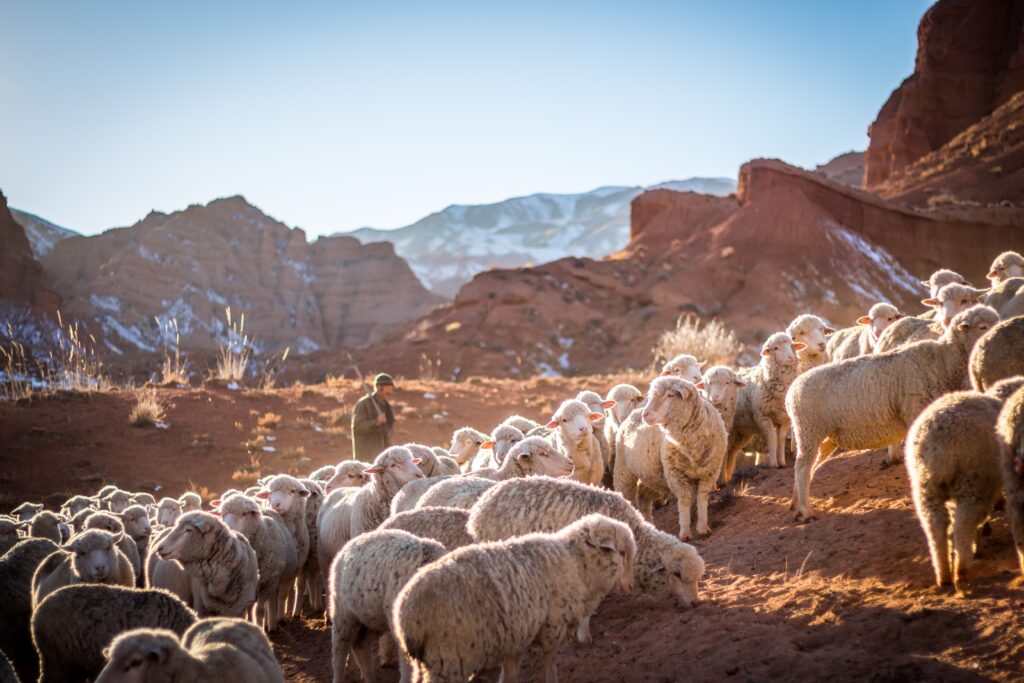Guidance regarding basic Islamic issues – which Hazrat Amirul Momineen, Khalifatul Masih Vaa has given on various occasions in his written correspondence and during MTA programmes – is being officially published below for everyone’s benefit.

Place of the advent of Hazrat Moses [Musaas]
Someone from Tunisia wrote to Hazrat Amirul Momineen, Khalifatul Masih Vaa, asserting that the Holy Quran and the Bible provide evidence that the advent of Hazrat Mosesas [Musa], like that of the Holy Prophet Muhammadsa, took place in the Hejazi towns of Mecca and Medina. He then sought Huzoor’saa opinion on this matter.
Huzoor-e-Anwaraa, in his letter dated 24 November 2021, provided the following guidance:
“Your attempt to support your position by referencing certain verses from the Holy Quran is based solely on your subjective interpretations and cannot be historically substantiated. Additionally, you have mixed up certain historical events.
“It appears that you may have misunderstood the meaning of the term ‘wadi’, interpreting it as referring only to the valleys of Mecca and Hudaybiyyah. You also seem to believe that مِنْ شَاطِئِ الْوَادِ الْأَيْمَن [‘from the right side of the Valley’ (28:31)] mentioned in Surah al-Qasas refers exclusively to the Valley of Mecca. However, this term has been used to describe numerous other places in the Holy Quran too.
“In fact, the location mentioned in this verse of Surah al-Qasas is actually related to a story of Hazrat Mosesas. According to it, after completing his agreement with his father-in-law, he and his family were travelling from Midian to a different location, when Allah the Exalted spoke to him and appointed him as a messenger, instructing him to go to Pharaoh in Egypt.
“The argument you presented based on the incident of Hudaybiyyah is also incorrect. The Holy Prophetsa had not yet entered Mecca at the time the treaty was signed with the polytheists of Mecca. Instead, he returned to Medina from Hudaybiyyah according to the terms of the treaty. The following year, he went to Mecca for ‘umrah in compliance with the treaty. However, it is true that during this journey, the foundation for the eventual conquest of Mecca was laid. Allah also granted the Holy Prophetsa the glad tidings of the conquest of Mecca with the revelation of Surah al-Fath during his return journey after the Treaty of Hudaybiyyah, referring to it as a ‘clear victory’. [Surah al-Fath, Ch. 48: V. 2]
“Furthermore, it seems incorrect to equate the Valley of Canaan with the Valley of Makkah. While it is true that the Holy Quran refers to the Valley of Canaan as a ‘Holy Land’, [Surah al-Ma’idah, Ch. 5: V. 21] the followers of Hazrat Mosesas refused to enter it, and as a result, Allah the Exalted deprived that nation of that land for forty years as a punishment. Additionally, due to the disobedience of his followers, Hazrat Mosessa himself was also deprived of this blessing.
“By contrast, Allah the Exalted blessed our lord and master, the Holy Prophet Muhammadsa, the chosen one, to settle in Yathrib, a town previously plagued with fever and other epidemic diseases, which was transformed into Madinat an-Nabi with a new order and system. Moreover, with the blessed arrival of the Holy Prophetsa, Allah transformed its poisonous atmosphere of fever and epidemics into a pleasant climate. Furthermore, Allah the Exalted allowed him to enter the blessed Valley of Makkah as a great victor, along with ten thousand of his most devoted and obedient saintly followers.
“It is clear that the blessed Valley of Makkah al-Mukarramah, filled with these extraordinary blessings and favours of God, cannot be compared to the settlement of Canaan. These are two distinct locations and should not be conflated.
“In your letter, you also mentioned the following incident, which you believed took place on the occasion of the signing of the Treaty of Hudaybiyyah. However, historical evidence indicates that this incident actually occurred during the Battle of Badr:
“When faced with the prospect of entering the Valley of Canaan, Hazrat Moses’as companions baulked and refused to go forward. However, the companions of the Holy Prophetsa, instead of echoing the Children of Israel by saying, ‘Go thou and thy Lord and fight, and here we sit’, submitted to the Holy Prophetsa that they would certainly fight alongside him.
“Thus, as I have written, these are all your personal opinions, most of which do not have any historical basis. Always remember that Quranic interpretation [tafsir] and explanation should not be done in a way that contradicts Quranic teachings, historical evidence mentioned in the Holy Quran, the sunnah of the Holy Prophetsa, and the teachings mentioned in the Hadith.”
Interval between azan and iqamah

Someone from Pakistan wrote to Hazrat Amirul Momineen, Khalifatul Masih Vaa and asked about the time gap between the azan and the iqamah for Fajr prayer. He asked if it was necessary for that time gap to be equivalent to the time required to recite Surah al-Baqarah, “as indicated in a hadith of Sahih al-Bukhari”.
Huzoor-e-Anwaraa, in his letter dated 14 December 2021, provided the following guidance regarding this issue:
“As far as I know, there is no such hadith in Sahih al-Bukhari that mentions that there should be a gap between the azan and iqamah of Fajr prayer equal to the time it takes to recite Surah al-Baqarah. Please send me the hadith from Sahih al-Bukhari that you are referring to, and then I can provide further clarification on this matter.
“Here at Mubarak Mosque, we observe a time gap of 25 to 40 minutes from the appearance of true dawn (Fajr azan) to the start of the prayer, according to seasonal variation. Usually, the time of Fajr azan is one hour and twenty minutes to one hour and thirty minutes before sunrise. This principle is generally followed in moderate weather zones all over the world.
“Due to the progress of science and the development of modern tools, it is now possible to accurately determine the exact timing of dawn, sunrise, sunset, etc. This level of precision was not achievable in earlier times.
“Islam did not prescribe a hard and fast rule for a specific time for prayers, but for the convenience of its followers, it designated a duration for all prayers during which they could be offered. This allows people to schedule congregational prayers at their convenience within the specified time periods.
“Hence, Hazrat Abu Hurairahra narrated that Allah’s Messengersa said, ‘Indeed, for [the time of] salat, [there is a] beginning and an end. The beginning of the time for the Zuhr prayer is when the sun passes the zenith, and the end of its time is when the time for Asr enters. The beginning of the time for Asr is when its time enters, and the end of its time is when the sun yellows [turns pale]. The beginning of the time of Maghrib is when the sun has set and the end of its time is when the twilight has vanished [i.e., the horizon is invisible because of darkness]. The beginning of the time for Isha, the later one, is when the horizon has vanished, and the end of its time is when the night is at its half. The beginning of the time for Fajr is when Fajr begins, and its end is when the sun rises.’ (Jami‘ at-Tirmidhi, Kitab as-salat, Bab ma ja’a fi mawaqiti s-salat)
“Likewise, Sulaiman bin Buraidah narrated that his father said, ‘A man came to Allah’s Messengersa and asked him about the times of salat. He replied, ‘Stay with us for these two days.’ Then, he told Bilalra to say the iqamah at dawn, and he prayed Fajr. Then he told him to do that when the sun had passed its zenith and he prayed Zuhr. Then he told him to do that when the sun was still bright, and he said the iqamah for Asr. Then he told him to do that when the last part of the sun had disappeared, and he said the iqamah for Maghrib. Then he told him to do that when the twilight had disappeared and he said the iqamah for Isha. The following day, he prayed Fajr when there was light, then delayed Zuhr until it was cooler, and waited until it was much cooler before praying Asr, but the sun was still clear, so he prayed Asr later than on the first day. Then he prayed Maghrib before the twilight disappeared. Then he told him to say the iqamah for Isha when one-third of the night had passed, and he prayed, then he said: ‘Where is the one who was asking about the times of salat? The times of your salat are between the times you have observed.’’ (Sunan an-Nasa’i, Kitab al-mawaqit, Bab awwali waqti l-maghrib)
“Based on authentic ahadith, it is evident that the Holy Prophetsa would usually lead the Fajr prayer so long after the start of its prescribed time that a person could recite between fifty to sixty verses of the Quran in that period. In the Fajr prayer, he would typically recite between sixty to a hundred verses. Upon completing the prayer, it would still be quite dark outside, such that individuals standing in close proximity could be recognised but those at a distance could not. (Sahih al-Bukhari, Kitab mawaqiti s-salat, Bab waqti l-‘asr & Bab waqti l-fajr)”
Bacterial electricity and soul (ruh)

Someone from Canada wrote to Hazrat Amirul Momineen, Khalifatul Masih Vaa that the bacterium Lactobacillus is found in sperm and can produce a type of electricity or light. He asked whether it was the same electricity or light that the Promised Messiahas was referring to in his book, The Philosophy of the Teachings of Islam, when discussing human birth.
Huzoor-e-Anwaraa, in his letter dated 14 December 2021, provided the following answer to this question:
“Your observation regarding the presence of the Lactobacillus bacteria in sperm as a contaminant and the ability of some of them to generate a small amount of electricity is accurate. It is important to note, however, that such bacteria are not solely present in sperm but are also found in a wide range of other sources, including yoghurt, vitamins, herbs, and other foods. Additionally, there are numerous other bacteria present in the human body that are also capable of generating electricity to some degree, including the probiotic microorganisms that aid in digestion. It is worth highlighting that the electricity generated by these bacteria is a result of the movement of electrons, which is a physical phenomenon.
“However, where the Promised Messiahas has discussed the appearance of the soul during human birth and explained the purpose and philosophy of the human relationship with Allah the Exalted, there, he has shed light on the inherent nature of humans.
“Allah the Exalted has also mentioned this nature in the following verse:
فِطۡرَتَ اللّٰهِ الَّتِيۡ فَطَرَ النَّاسَ عَلَيۡهَا
“‘[And follow] the nature made by Allah — the nature in which He has created mankind.’ (Surah ar-Rum, Ch.30: V.31)
“Moreover, the Holy Prophetsa has emphasised the importance of this innate nature in the following hadith:
مَا مِنْ مَوْلُودٍ إِلَّا يُولَدُ عَلَى الْفِطْرَةِ فَأَبَوَاهُ يُهَوِّدَانِهِ أَوْ يُنَصِّرَانِهِ أَوْ يُمَجِّسَانِهِ
“‘Every child is born in the true Islamic nature [fitrah], but his parents make him a Jew, Christian, or Magian.’ (Sahih al-Bukhari, Kitab l-jana’iz, Bab idha ’aslama s-sabiyyu fa mata hul yusalliya ‘alayh)
“The Promised Messiahas states:
“‘As a child partakes somewhat of the features and characteristics of his parents, in the same way, souls, which have proceeded from the hand of God Almighty, partake somewhat of the character and qualities of their Creator. Though in cases in which the darkness and heedlessness of being created prevails over some souls, the Divine colour appears somewhat faded, it cannot be denied that every soul possesses that colour to some degree. In some cases, that colour appears unattractive on account of misuse, but that is not the fault of the colour; it is the fault of the use to which it is put.’ (Surmah-e-Chashm-e-Arya, Ruhani Khazain, Vol. 2, pp. 168-169)
“While explaining the reality of the soul, the Promised Messiahas states:
“‘The soul is a fine light developed inside the body and nurtured in the womb. To begin with, it is hidden and imperceptible, and later it is made manifest. From the very beginning, its essence is present in the sperm. It is related to the sperm in a mysterious manner by the design, command and will of God. It is a bright and illumined quality of the sperm. It cannot be said that it is a part of the sperm as matter is part of matter, nor can it be said that it comes from outside or falls upon the earth and gets mixed with the matter of the sperm. It is latent in the sperm as fire is latent in the flint. The Book of God does not mean that the soul descends from heaven as a separate entity or falls upon the earth from the atmosphere and then, by chance, gets mixed with the sperm and enters the womb with it. There is no basis for such a notion. The law of nature rejects it.’ (Islami Usul Ki Falasfi, Ruhani Khazain, Vol. 10, pp. 322-323)
“While explaining the relationship between the soul and body, Huzooras states:
“‘Thus physical injuries disclose that there is a mysterious relationship between the soul and the body which is beyond the ken of man. Reflection shows that the body is the mother of the soul. The soul does not descend from outside into the womb of a pregnant woman. It is a light that is inherent in the sperm which begins to shine forth with the development of the foetus.’ (Islami Usul Ki Falasfi, Ruhani Khazain, Vol. 10, pp. 321)
“Huzooras further elaborates as follows:
“‘With the very creation of Adam, God instilled in his nature a relationship with Himself by breathing into him of His spirit. This was done so that man should have a natural relationship with God.’ (The Review of Religions, Vol. 1, No. 5, May 1902, p. 178)
“With regard to the soul being breathed into a human, Huzooras states:
ثُمَّ اَنۡشَاۡنٰهُ خَلۡقًا اٰخَرَ ؕ فَتَبٰرَكَ اللّٰهُ اَحۡسَنُ الۡخٰلِقِين
”‘It means: ‘Having created him once, We developed man into another creation.’ [Surah al-Mu’minun, Ch.23: V.15] The word ‘another’ is meant to convey that this birth is so unfathomable as to be beyond the confines of human intelligence and very far from his understanding. In other words, the spirit that is infused into the body after its completion, both in a spiritual and physical sense, is so profound that all the philosophers and materialists are left to wonder about its nature. […] What Allah the Exalted says here is that the ‘spirit’ is also a creation of God, but it is beyond worldly comprehension.’ (Appendix to Barahin-e-Ahmadiyya Part V, Ruhani Khazain, Vol. 21, pp. 216-217)
“While elucidating the reality of the soul [ruh], Hazrat Musleh-e-Maudra states:
“‘In essence, it is the soul that distinguishes one’s existence. Therefore, the soul that sets an animal apart from other things and the soul that distinguishes humans from animals are both referred to by the term ‘ruh’. It is also the soul that elevates humans to the station of such humans, who have communion with God. Hence, the Divine Word is also a ruh that bestows a new life upon humans.’ (Tafsir-e-Kabir, Vol. 4, p. 72)
“Hence, it is proven from these statements that the soul manifested by Allah the Exalted at the time of human physical and spiritual birth, for the preparation of the human form, is something completely different from the ability of various kinds of bacteria to produce electricity.”
Last day for Eid al-Adha sacrifice (qurbani)

What is the latest time and day for performing the ritual sacrifice (qurbani) on the occasion of Eid al-Adha?
Huzoor-e-Anwaraa, in his letter dated 21 March 2022, provided the following guidance regarding a fatwa issued by Dar-ul-Ifta on the above-mentioned question:
“Regarding the duration of the Eid al-Adha sacrifice, your fatwa is correct and I concur that under normal circumstances, the sacrifice can only be performed for three days. However, if there are any extenuating circumstances, the sacrifice may be performed beyond the initial three-day period.
“Nevertheless, I disagree with your inference from the guidance of Hazrat Khalifatul Masih IVrh. My understanding is that Huzoorrh is also stating that the sacrifice can only be performed for three days, and that is the instruction of Huzoorrh which was intended for general circumstances.”
[Note: The guidance of Hazrat Khalifatul Masih IVrh, which Huzooraa has mentioned in the aforementioned letter, is as follows:
“The Holy Prophetsa used to deliver a brief Eid sermon before promptly proceeding to his house for the sacrifice. One reason behind this practice was that the Holy Prophetsa would fast until he had eaten from the meat of that sacrifice. However, some people have misunderstood this sunnah and believe that they must fast on the day of Eid and refrain from eating until they have completed [the fast]. This is not the intended meaning of the sunnah that eating before that has become haram. The sunnah is that the person, who is offering the sacrifice, should fast on the day he intends to offer the sacrifice until he has obtained the meat from the sacrifice. The sacrifice is performed over three days. If the incorrect understanding is adopted, some people, who intend to offer the sacrifice on the fourth day, may believe that they must fast for four days, which could of course lead to their remaining hungry for four days.” (Khutbat-e-Tahir (Eidain), Eid al-Adha Sermon, 28 March 1999, p. 655)]
(Compiled by Zaheer Ahmad Khan, Head of Records Department, Private Secretariat, London. Translated by Al Hakam.)

